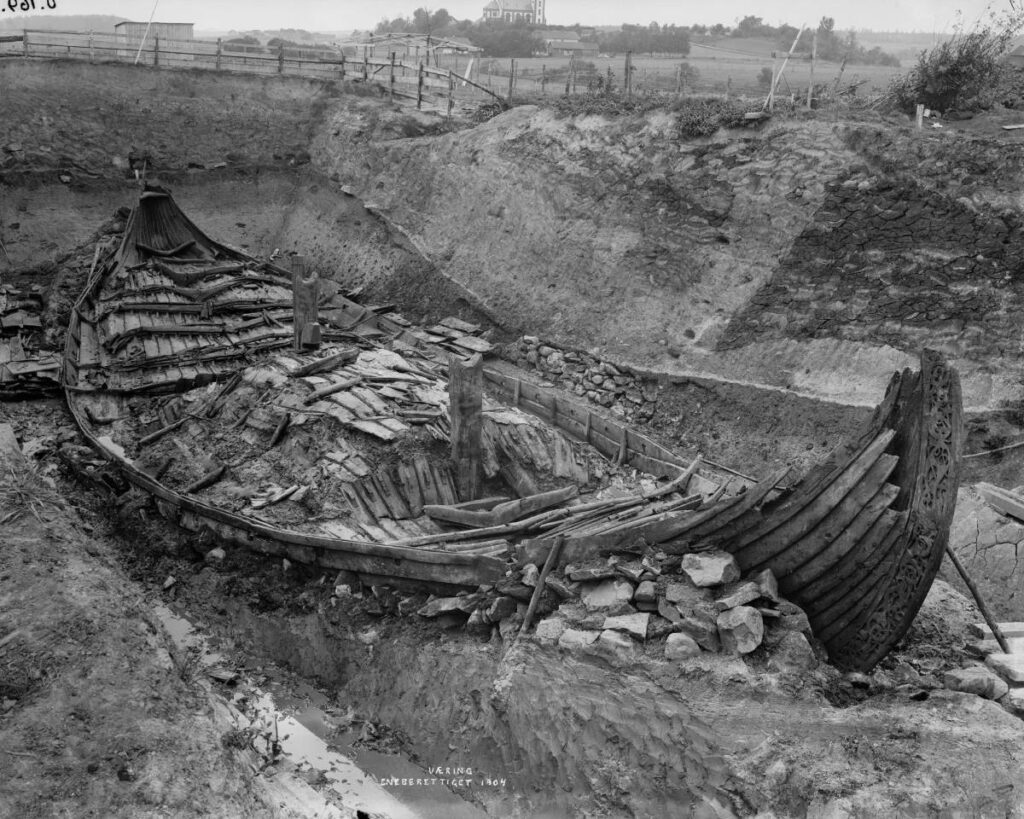Many moons ago, way before the hush of cemeteries or the soft murmur of graveyards became a thing, our ancestors had some pretty out-there ways of saying goodbye to their loved ones.
Imagine, instead of the solemn ceremonies we’re used to today, they’d chuck a body off a cliff, leave it to chill on a mountain, sink it into a lake or even set it sailing on the sea tied to a pile of wood. Some opted for the wild option, leaving the dearly departed in a jungle for the animals or tucking them into a cave.
And let’s not forget about the ultimate send-off: cannibalism. That’s right, a real feast for the family. Sounds wild, right?
But back then, these rituals were the norm – the ultimate tribute to Mother Earth.
Rough waters
Vikings did it differently. The most extravagant departure was of two women, sent away on the Oseberg Ship. This was way back in 834 A.D.
The Oseberg Ship is one of the most preserved Viking artefacts. The ship was mammoth-sized — 70 feet long and 17 feet wide with 15 oars on each side. It was big enough to fit 30 people and their belongings. Frankly, that was quite a lot even by today’s standards.

Fast forward to now, and we’ve got what we call ‘cemeteries’, derived from the Greek word ‘Koimeterion’, which means ‘Sleeping Place’.
These are the spots we’ve designated for laying our dead to rest. And then there’s Wadi Al-Salaam, or ‘Valley of Peace’, which is not just any old graveyard; it’s the biggest one around, nestled in the Shia holy city of Najaf, Iraq.
Though we often mix up the terms, graveyards are technically the burial grounds cuddled up next to churches. Back in the 7th century, churches had the final say over graveyards. But as time ticked on, we needed more room to say our goodbyes, leading to the birth of cemeteries. These new resting places, found on the edges of towns and cities, weren’t run by the church but by folks like you and me.
Here’s a quirky titbit: cemeteries weren’t always the eerie places of ghost stories and spooky tales. Yes, they were once the life of the party — places where people came together to celebrate, with fairs, anniversaries and all sorts of shindigs.
But how did cemeteries go from community hubs to the spine-chilling spots of lore we think of today?It didn’t happen overnight. Gradually, those lush, tomb-adorned gardens got swapped out for parks and green spaces where folks preferred to hang out. As cemeteries and graveyards saw less foot traffic, the whispers of hauntings began to grow, transforming these once-celebrated places into the haunted grounds of legend.
So, next time you hear a ghost story about an old cemetery, remember: it might have once been the place to be, bustling with life and laughter.
And hey, if you’ve got your own tales or fun facts about cemeteries, don’t keep them to yourself. Share them below and let’s unravel the mysteries of these fascinating places together. Who knows, maybe those stories of hauntings are just the spirits wanting in on the fun.